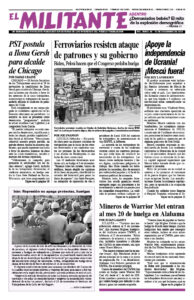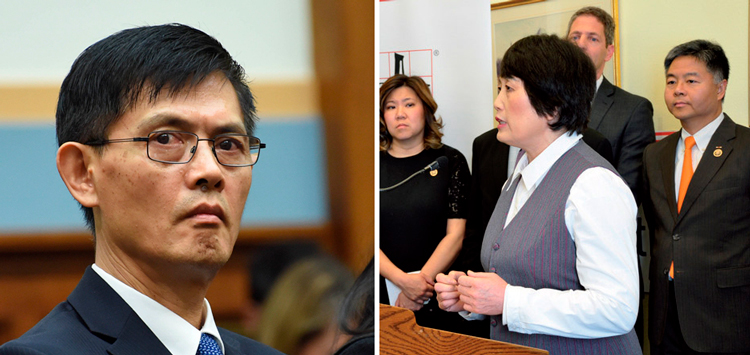SAN FRANCISCO — At a Nov. 12 program during the conference of the International Society for the Study of Chinese Overseas here (see accompanying article), three Chinese scientists, all naturalized U.S. citizens, gave powerful accounts of how they stood up to FBI attempts to frame them on espionage and other charges, won support and prevailed.
Sherry Chen, a hydrologist at the National Weather Service in Wilmington, Ohio, described how she was victimized by the U.S. Justice Department during the Obama administration. In October 2014, Chen told the audience, “my life was turned upside-down. Six FBI agents arrested me in front of my co-workers and led me off in handcuffs. They treated me like a criminal. I was extremely ashamed.” The proud reputation she had earned for years of work improving flood forecasting along the Ohio River “was destroyed.”
The Justice Department falsely accused Chen of economic espionage based on public information about water reservoirs she had shared with a former classmate and hydrologist in China, where Chen was born and went to school. Threatened with 25 years in prison, federal prosecutors offered to reduce the charges if she pleaded guilty. “I refused — I couldn’t admit to a crime I didn’t commit,” she said.
“One week before my trial, the prosecutors dropped the charges” without explanation, Chen said. “But the nightmare was not over. Instead of apologizing, the U.S. Commerce Department [which runs the Weather Service] terminated me on the same charges.” Ignoring advice from colleagues to give up, Chen filed a lawsuit for her wrongful prosecution and firing and a judge ordered her reinstatement. The Commerce Department appealed.
Finally, on Nov. 10, on the eve of the ISSCO meeting, Chen won a settlement of more than $1.5 million in damages. In addition, the Commerce Department has agreed to provide her with a letter recognizing her accomplishments during her years at the Weather Service. “This was a big win for me, for the Chinese American community, and for the rule of law,” Chen told the audience to a standing ovation.
Also speaking on the panel were Xiaoxing Xi and Gang Chen. In 2015 Xi, chair of the physics department at Temple University, was arrested in front of his wife and two daughters by heavily armed FBI agents who burst into their home at dawn. Federal prosecutors charged him with illegally sending trade secrets to China — the design of a superconductor device known as a pocket heater — and threatened him with 80 years in prison.
Xi challenged the premise of the government’s case. Peter Zeidenberg, his lawyer, told the press that it’s not that the case was “weak,” but that the case was “nonexistent.”
He won public support and the Justice Department, recognizing they had no case, dropped the charges. “But the government violated my constitutional rights,” Xi noted, including by hacking his phone calls and email without a warrant, and on that basis he filed a lawsuit against the FBI. A federal court rejected his case, and Xi has appealed.
In January 2021, Gang Chen, a Chinese-born mechanical engineer at the Massachusetts Institute of Technology, was also arrested in front of his family when more than 10 gun-toting FBI agents barged into their home. He faced 20 years in prison on charges of failing to disclose connections to Chinese educational programs while applying for a federal grant. He won strong support, with 200 fellow faculty members signing an open letter that denounced the frame-up and declared, “We are all Gang Chen.” He was backed by the president of MIT, which Chen said paid his legal expenses. This past January the Justice Department dropped the charges, indicating it “could no longer meet its burden of proof at trial.”


